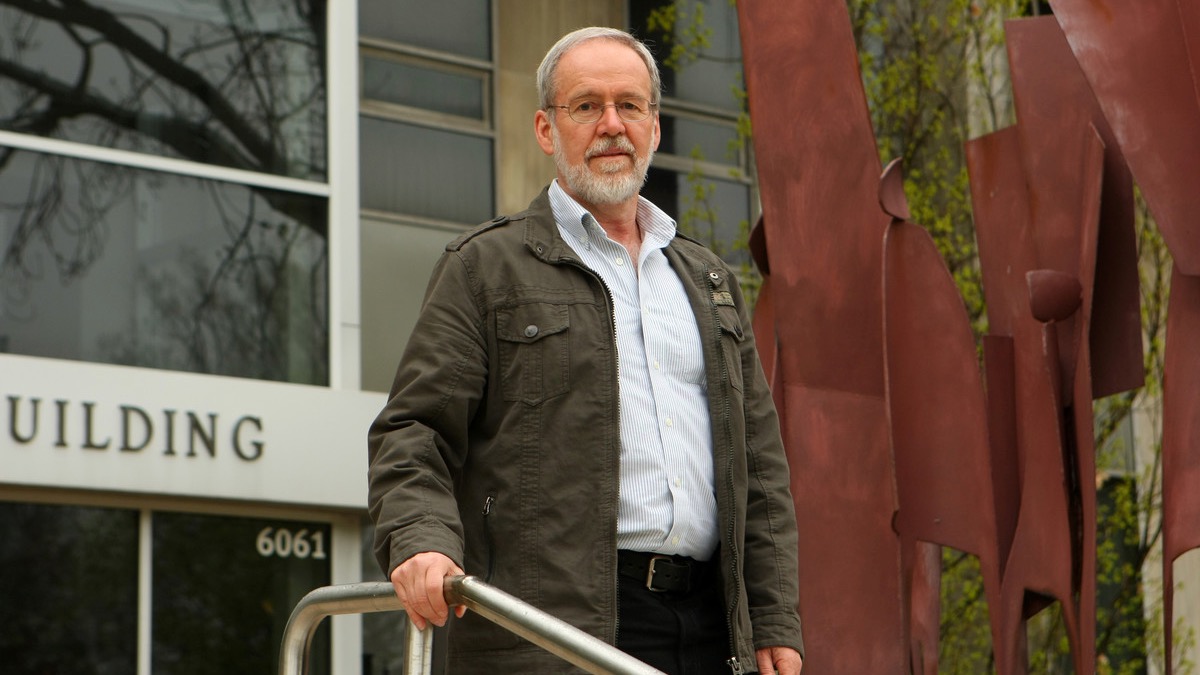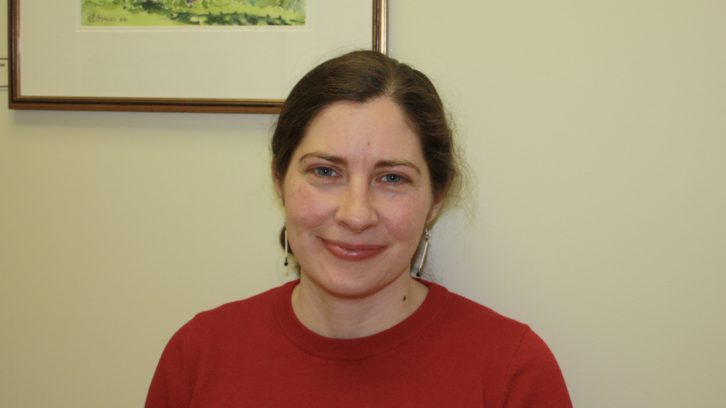Return of St. FX student acquitted of sex assault prompts questions about university policies, legal system
Legal expert says schools are not bound by court decisions, women’s advocate says both processes need work

caption
Wayne MacKay, Dalhousie law professorEditor's Note
This is Part 2 of a two-part series on a St. FX student acquitted of sexual assault returning to campus. Part 1 deals with reaction from students and staff.
The return of a student acquitted of sexual assault to St. Francis Xavier University has prompted questions about how both universities and the courts handle sexual assault complaints.
In October, Luke Letourneau was found not guilty in Nova Scotia Supreme Court of a sexual assault alleged to have occurred on St. Francis Xavier University campus in 2017.
That criminal case followed an internal St. FX investigation in 2018 that found him responsible and suspended him, then overturned that suspension. He was allowed to return to campus, but the university failed to inform his accuser.
At the time, students were outraged and formed a group called X-Resist to protest what they saw as the university’s mishandling of the case. The president of the university, Kent MacDonald, issued a public letter acknowledging that the university “can do better.” Related stories
“We remain committed to believing and supporting people who disclose that they have experienced sexual violence,” MacDonald said.
He announced that he had decided Letourneau should withdraw for the year, and that Letourneau had done so. MacDonald also announced that they would be inviting input from the broader community and reviewing their appeals processes with “the goal of a victim/survivor-focused approach.”
St. FX University has made changes to the way it deals with sexualized violence on campus since 2018. An updated, and more “survivor-centric” sexual violence policy was put in place in 2020.
However, many students and some faculty members feel allowing Letourneau to return, even after his acquittal, falls short of this commitment to a more “survivor-centric” approach. X-Resist is once again organizing protests as Letourneau returns to campus this month.
The Signal contacted Letourneau for his response, but he declined to comment. However, in a statement to the Xaverian Weekly, he said, “I am looking forward to resuming my education at St. FX and am pleased that the university has welcomed me back.”
“It was a great relief to me to be completely vindicated by the judge last fall, and I would encourage anyone doubting the outcome of the case to read [Justice Denise Boudreau’s] verdict.”
University investigation vs. the courts
Wayne MacKay is a Professor Emeritus at Dalhousie’s Schulich School of Law and part of a seven-year research project called iMPACTS, addressing sexual violence on university campuses across Canada and internationally. He has written extensively on education and university law.
“A lot of people don’t properly understand that the various ways of holding a person responsible are interconnected, but not exactly the same,” said MacKay.
Before Letourneau’s acquittal in court, the university had conducted its own independent investigation in 2018 into the alleged assault (before the matter was reported to RCMP).
Documents from Letourneau’s lawyer, Hector MacIsaac, provide some details of the hearing and appeal process. After a hearing on March 21, 2018, the university’s judicial board found Letourneau responsible for violating Community Code Major H — “engaging in sexual harassment and/or sexual assault,” and suspended him for the following school year.
Does a criminal court’s decision supersede the school’s decision? MacKay said the university “very clearly” has the right to suspend or expel a student that it has found responsible for an assault, even after they are acquitted of the same charges by a criminal court.
He added that these are two “parallel but different processes.”
A school’s discipline structures have a different standard. Unlike the criminal courts, a university policy doesn’t have to require proof beyond a reasonable doubt. It need only require the balance of probabilities.
“You can be not guilty in a criminal court but not innocent,” MacKay said. “And therefore, properly liable to penalties [such] as a university discipline structure or properly liable for civil action in lawsuits.”
University’s decision-making process unclear
Letourneau’s first appeal, on April 9, 2018, was of both the decision (guilty) and the outcome (suspension). It failed. The findings and the outcomes of the investigation were upheld.
He appealed again later that same month, this time asking only to modify the outcome. A student advocate assigned to him argued that a year-long suspension was too harsh. The judicial board had focused only on the incident and not taken Letourneau’s character and contributions to campus life into account.
Letourneau, he said, was “an asset to [the] university community” — he excelled academically, participated in the arts, was “from a family of Xaverians, who continue to be active members of the Alumni Association.” The suspension, he argued, would “cause harm to the university and university community.”
In September 2018, Letourneau had returned to campus.
When the complainant, who cannot be named under a publication ban, returned and discovered him on campus, she left the university.
The Signal repeatedly requested information from St. FX as to their reasons for granting this appeal and how his return fits with their original findings and their new “survivor-centric” approach to dealing with sexual violence on campus. St. FX did not respond.

caption
St. FX University is still dealing with fallout from the handling of an alleged sexual assault case from 2018.MacKay said the case raises questions about the university’s decision-making process. He said he’s left wondering whether Letourneau’s return means the school has overturned the guilty decision from its own investigation.
Is the university’s position, “Well, we got it wrong originally, and so now we’re letting him back?” he asked. “Or are they just saying we still think we got it right, but in light of this acquittal, it’s not a criminal matter.
“It still obviously and understandably would make students uncomfortable,” MacKay said, “that a person who, at least initially, was found who have engaged in sexual assault is now back among them.”
MacKay said this is a major issue right across the country. Universities are trying to strike the right balance with their sexual assault policies and procedures. It’s important to ensure a fair hearing to those who were accused, he said, but you also need to adequately protect people. And, campuses are a “high danger” context, because young students, often away from home and living on their own for the first time, are among the most vulnerable groups.
Trauma in court
Wyanne Sandler, is the executive director of the Antigonish Women’s Resource Centre and Sexual Assault Services Association. She wants to acknowledge that St. FX has made progress since 2018 in how it deals with sexual violence on campus. It has invested in important new supports for survivors like the full-time Sexual Violence Prevention and Response Advocate and made significant “survivor-centric” changes to the sexual violence policy.
“However, I think this particular case demonstrates just how much work remains to be done,” Sandler said, in both university and legal contexts, “to address rape myths and to hold those who cause harm through sexual violence accountable.”

caption
Wyanne Sandler is the executive director of the Antigonish Women’s Resource Centre.Society, Sandler said, still seems to be more concerned about how processes impact the person who caused harm by perpetrating sexual violence than how they impact the survivor who experienced it.
The legal system, she said, places the burden of proof on the complainant. But because sexual assault usually occurs in private situations where only two people are present, proving the complainant’s account without any witnesses can be very difficult. It often comes down to he said/she said. This often leads to attacks on the complainant’s credibility, she said, and the perpetuation of rape myths often used by the defence.
“We also often see a lack of understanding of the impacts of trauma,” Sandler said, “and how this can create gaps in memory, for example.”
Memory gap and credibility
Justice Denise Boudreau’s October 2020 decision to acquit Letourneau hinges on the “memory gap” the complainant says she had during critical moments of the alleged assault. She concluded the complainant’s actions showed the sex was consensual.
Although the complainant said she remembers the majority of the evening’s events very clearly and maintains that while she had been drinking she was not intoxicated, she does not remember how she got onto the bed or how her pants and underwear were removed.
In her decision, Boudreau states “the Crown in submissions offered possible explanations (e.g. the effects of alcohol, the trauma of the incident), but those frankly are completely speculative. We have no evidence to support those in my view.”
The simplest explanation, Boudreau said, coming from her own “plain common sense,” is that the complainant has not forgotten.
“The only reasonable inference I can draw from that, is that she does not want to share with the Court what she remembers. And that conclusion leads me to having serious doubts as to the complainant’s credibility regarding the events of that evening, including her testimony that she did not consent.”
Boudreau identified two other areas of evidence that gave her concern for the complainant’s credibility — “the difficulty she had being forthright about the circumstances of the first kiss,” and conflicting statements about whether she had any further contact with Letourneau.
As Wayne MacKay sees the decision, Boudreau is not ruling out the possibility that trauma could have caused a memory gap, but that she was not provided adequate evidence in this case that trauma, for medical or scientific reasons, could have caused such a gap. That evidence could have been in the form of testimony from an expert witness.
Trauma response is obviously central to this case, MacKay said, and it shows how crucial it is that judges and lawyers have adequate trauma response education and training when dealing with these very difficult cases.
MacKay said it raises the question of why the Crown didn’t call an expert witness to testify that trauma response can cause memory gaps like those experienced by the complainant.
When asked if there had been any discussion of bringing in an expert witness, the complainant said in a message to The Signal that the issue never came up. It’s also important to note that the Crown is not the complainant’s counsel, nor does the Crown take instructions from the complainant in these cases.
Undermining processes, less reporting
Wyanne Sandler said she believes the decision to allow Letourneau to return could affect how the university’s policies and processes are seen. If trust in those systems is undermined, or the response is seen as inadequate, survivors could stop coming forward and stop reporting.
The same goes for criminal courts.
“There is a lot of work needed to make the legal system more trauma-informed and supportive for survivors,” she said.
The success rates of sexual assault cases in courts do little to encourage reporting. Tracking a six‑year period between 2009 and 2014, Statistics Canada found that one in five (21 per cent) sexual assaults reported by police led to a completed court case. About one in 10 (12 per cent) sexual assaults reported by police led to a criminal conviction.
Sandler wants survivors to know “that there are people who will believe you and there are supports available for you.” She encourages people to reach out to the Women’s Centre or to the Sexual Violence Prevention and Response Advocate at St. FX.
“I know that people are upset and frustrated by what has happened in this case, and I share those feelings,” Sandler said. “Instead of letting that silence or deter us, let’s continue to push to make things better for survivors of sexual violence.”
About the author
Rose Murphy
Rose Murphy is a multimedia journalist in Nova Scotia. She is interested in stories about unusual characters, small business, resilient communities,...
